Today Current Affairs: 4th November 2021 for UPSC IAS exams, State PSC exams, SSC CGL, State SSC, RRB, Railways, Banking Exam & IBPS, etc
Table of Contents
State Of Global Climate-2021:
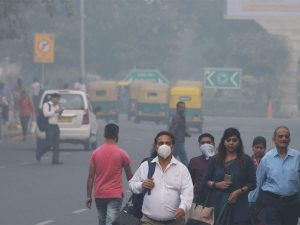
A provisional report released by the World Meteorological Organisation has stated that the last seven years have been the warmest on record and global sea-level rise accelerated since 2013, reaching a new high in 2021.
- The report has attributed the record sea-level rise to warming up and acidification of ocean waters. The provisional report titled ‘State of Global Climate-2021’, was released in Geneva.
- The COP-26 conference began in Glasgow, combines inputs from multiple United Nations agencies, national meteorological and hydrological services and scientific experts.
- During COP-26, the WMO will launch the Water and Climate Coalition to coordinate water and climate action and the Systematic Observations Financing Facility to improve weather observations and forecasts which are vital to climate change adaptation.
Deforestation:

More than 100 world leaders have promised to end and reverse deforestation by 2030, in the COP26 climate summit’s first major deal.
- Brazil, where stretches of the Amazon rainforest have been cut down, was among the signatories. The pledge includes almost $19.2bn of public and private funds.
- Experts welcomed the move, but warned a previous deal in 2014 had failed to slow deforestation at all and commitments needed to be delivered on. Felling trees contributes to climate change because it depletes forests that absorb vast amounts of the warming gas CO2.
- The Global Methane Pledge, first announced in September, now covers emissions from two-thirds of the global economy, according to the U.S. official.
- Among the signatories is Brazil — one of the five biggest emitters of methane, which is generated in cows’ digestive systems, in landfill waste and in oil and gas production.
- Three others — China, Russia and India — have not signed up. Australia has said it will not back the pledge.
Infrastructure For Resilient Island States (IRIS):
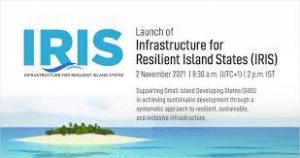
Prime Minister Narendra Modi launched Infrastructure for Resilient Island States (IRIS) on sidelines of climate summit in Glasgow.
- Infrastructure for Resilient Island States or IRIS is the first major initiative by the Coalition for Disaster Resilient Infrastructure (CDRI) started by India in 2019.
- IRIS seeks to operationalise the CDRI initiative.
- It is aimed at achieving sustainable development through a systematic approach to resilient, sustainable and inclusive infrastructure in Small Island Developing States (SIDS).
- Small island states are the most vulnerable to the impacts of climate change. As sea levels rise, they face a threat of being wiped off the map.
- According to CDRI, several small island states have lost 9 per cent of their GDPs in single disasters during the last few years.
Ayushmaan CAPF Scheme:

Union Home Minister Amit Shah launched the ‘Ayushmaan CAPF’ Scheme health cards at the national level in New Delhi.
- The Home Minister had launched ‘Ayushmaan CAPF’ Scheme on pilot basis in the State of Assam on 23rd of January this year to provide health care services to all Central Armed Police Force (CAPFs) personnel and their dependents.
- The scheme is a joint initiative of the Home Ministry, Health Ministry and National Health Authority (NHA).
- The health card distribution will be undertaken in all CAPFs and the number of cards distributed will be displayed on the website of Home Ministry on a daily basis.
- The distribution of about 35 lakh cards will be completed by December this year.
Revised Prompt Corrective Action (PCA) Framework For Banks:
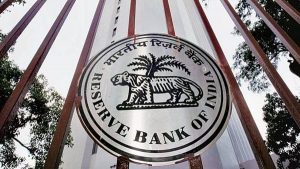
The RBI has issued a revised Prompt Corrective Action (PCA) framework for banks to enable supervisory intervention at “appropriate time” and also act as a tool for effective market discipline.
- The revised PCA framework will be effective from January 1, 2022.
- Capital, asset quality and leverage will be the key areas for monitoring.
- Indicators to be tracked for capital, asset quality and leverage would be CRAR/Common Equity Tier I Ratio, Net NPA Ratio and Tier I Leverage Ratio, respectively.
Prompt Corrective Action (PCA):
- PCA is a framework under which banks with weak financial metrics are put under watch by the RBI.
- The RBI introduced the PCA framework in 2002 as a structured early-intervention mechanism for banks that become undercapitalised due to poor asset quality, or vulnerable due to loss of profitability.
- It aims to check the problem of Non-Performing Assets (NPAs) in the Indian banking sector.
- The framework was reviewed in 2017 based on the recommendations of the working group of the Financial Stability and Development Council on Resolution Regimes for Financial Institutions in India and the Financial Sector Legislative Reforms Commission.
- The PCA is invoked when certain risk thresholds are breached.
- There are three risk thresholds which are based on certain levels of asset quality, profitability, capital and the like.
Asset Reconstruction Companies (ARCs):RBI
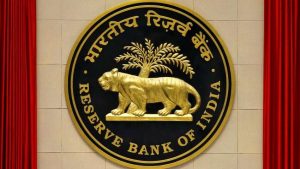
To streamline the functioning of asset reconstruction companies (ARCs), the Reserve Bank panel has come out with a host of suggestions.
- The RBI had set up a committee headed by Sudarshan Sen to undertake a comprehensive review of the working of asset reconstruction companies (ARCs) in the financial sector ecosystem and recommend suitable measures for enabling them to meet the growing requirements.
Suggestions:
- Create an online platform for the sale of stressed assets.
- Allow ARCs to act as resolution applicants during the IBC process.
- The scope of Section 5 of the SARFAESI Act be expanded to permit ARCs to acquire financial assets from all regulated entities, including AIFs, FPIs, AMCs making investment on behalf of MFs and all NBFCs including HFCs.
- For accounts above ₹500 crore, two bank-approved external valuers should carry out a valuation to determine liquidation value and fair market value.
- Also, the final approval of the reserve price should be given by a high-level committee that has the power to approve the corresponding write-off of the loan.
Asset Reconstruction Company (ARC):
- It is a specialized financial institution that buys the Non Performing Assets (NPAs) from banks and financial institutions so that they can clean up their balance sheets.
- This helps banks to concentrate in normal banking activities. Banks rather than going after the defaulters by wasting their time and effort, can sell the bad assets to the ARCs at a mutually agreed value.
- The asset reconstruction companies or ARCs are registered under the RBI.
- The Securitization and Reconstruction of Financial Assets and Enforcement of Security Interest (SARFAESI) Act, 2002 provides the legal basis for the setting up of ARCs in India.
- The SARFAESI Act helps reconstruction of bad assets without the intervention of courts. Since then, a large number of ARCs were formed and were registered with the Reserve Bank of India (RBI) which has got the power to regulate the ARCs.
Unconstitutional – A Reservation Law Passed By The Tamil Nadu Legislative Assembly:
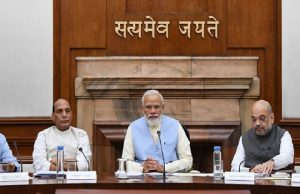
The Madras High Court has declared as unconstitutional a reservation law passed by the Tamil Nadu legislative Assembly.
- The law envisaged providing 10.5% internal reservation to Vanniakula Kshatriya community, within the 20% earmarked for Most Backward Classes (MBCs) in education and public employment.
About Vanniakula Khastriya Reservation:
- The reservation was provided under the State within the reservation for the Most Backward Classes and Denotified Communities Act, 2021.
Vanniakula Khastriya (including Vanniar, Vanniya, Vannia Gounder, Gounder or Kander, Padayachi, Palli and Agnikula Kshatriya) community. - The second Tamil Nadu Backward Commission in 1983, held that the population of Vanniakula Kshatriyas was found to be 13.01% of the State’s total population.
- Therefore, provision of 10.5% reservation to a community with a population of 13.01% could not be called disproportionate.
Grounds for Challenging the Bill: - The law was challenged on account of the law being passed just hours before the Model Code of Conduct (MCC) came into force in the State in February 2021.
- Further, the petitioner argued that the enactment was politically motivated and that the law was passed hastily.
- Tamil Nadu Government’s Argument: In a democratic polity, an elected government cannot be barred from exercise of its power to make a policy to legislate any law during its tenure/until the last minute it holds power to meet the public opinion at large.
- In 2020, a commission to collect quantifiable data on castes, communities and tribes in the State was established in chairmanship of retired High Court judge A. Kulasekaran within six months.
- The Tamil Nadu government held that the commission did not submit any report within its tenure.
- Further, asserting that the government was empowered to pass such a law for providing internal reservation, it referred to a 2007 enactment through which Backward Class Muslims in the State were being actively provided separate reservation.
Khasi Inheritance Of Property Bill, 2021:

The Khasi Hills Autonomous District Council (KHADC) in Meghalaya announced that it would introduce the ‘Khasi Inheritance of Property Bill, 2021. The bill is aimed at “equitable distribution” of parental property among siblings in the Khasi community.
- If implemented, the proposed Bill would modify an age-old customary practice of inheritance of the matrilineal Khasi tribe.
About Matrilineal System of Inheritance:
- The three tribes of Meghalaya — Khasis, Jaintias, and Garos — practise a matrilineal system of inheritance.
- In this system, lineage and descent are traced through the mother’s clan.
- In other words, children take the mother’s surname, the husband moves into his wife’s house, and the youngest daughter (khatduh) of the family is entrusted the full share of the ancestral – or the clan’s – property.
- The khatduh becomes the “custodian” of the land, and assumes all responsibility associated with the land, including taking care of aged parents, unmarried or destitute siblings.
- This inheritance tradition applies only to ancestral or clan/community property, which has been with the family for years. The self-acquired property can be distributed equally among siblings.
- In this traditional set-up, if a couple does not have any daughters, then the property goes to the wife’s elder sister, and her daughters.
- If the wife does not have sisters, then the clan usually takes over the property.
- Effect of this System on Women Empowerment: Women activists have often pointed out that the matrilineal system in Meghalaya rarely empowers women.
- Custodianship is often misconstrued as ownership vested in just one person, that is the youngest daughter.
- This custodianship comes with the responsibility to care for aged parents, unmarried or destitute siblings and other clan members.
- Moreover, the custodian cannot buy or sell the land, without taking permission from her maternal uncle.
- People often confuse matrilineal with matriarchal, where women function as heads.
- While women may have freedom of mobility and easier access to education, they are not decision makers in Meghalaya.
- There are barely any women in positions of power, in politics, or heading institutions.
Provisions:
- The proposed Bill is envisaged to provide the “equitable distribution” of parental property among siblings – both male and female.
- The Bill would let parents decide who they want to will their property to.
- It would prevent a sibling from getting parental property if they marry a non-Khasi and accept the spouse’s customs and culture.
Project-15B:

The first ship of the four Project-15B state-of-the-art stealth guided missile destroyers i.e. ‘Y 12704 (Visakhapatnam)’, was delivered to the Navy.
- The ship is constructed using indigenous steel DMR 249A and is amongst the largest destroyers constructed in India.
India’s Destroyer Construction Programme:
- India’s indigenous Destroyer construction programme commenced in the late 1990s with the three Delhi class (P-15 class) warships and this was followed by three Kolkata class (P-15A) destroyers commissioned a decade later.
- Presently, under the P-15B (Visakhapatnam Class), a total of four warships are planned (Visakhapatnam, Mormugao, Imphal, Surat).
- The Destroyers come next only to an Aircraft Carrier (INS Vikramaditya) in terms of their reach and endurance.
Project-15B:
- Four Guided missile Destroyers of Project 15B (P 15B) are under construction at M/s Mazagaon Dock Shipbuilders Limited, Mumbai. The contract for construction of these four ships was signed in 2011.
- These ships are amongst the most technologically advanced Guided Missile Destroyers of the world, with state-of-the-art weapon/sensor package, advanced stealth features and a high degree of automation.
- These ships are equipped with BrahMos supersonic cruise missiles and long-range Surface-to-Air Missiles (SAM).
- The ship has several indigenous weapons systems like medium range Surface-to-Air Missile (SAMs), indigenous torpedo tube launchers, anti-submarine indigenous rocket launchers and 76-mm super rapid gun mount.
Whistle Blower Portal: IREDA

The Indian Renewable Energy Development Agency (IREDA) has launched a ‘whistle-blower Portal’, as a part of ‘Vigilance Awareness Week 2021’.
- It is a part of IREDA’s “zero tolerance” of corruption. Through this portal, IREDA employees can raise concerns related to fraud, corruption, abuse of power etc.
- IREDA is a Mini Ratna (Category – I) Government of India Enterprise under the administrative control of the Ministry of New and Renewable Energy (MNRE).
Whistleblowing:
- According to the Companies Act 2013, whistleblowing is an action aimed at drawing the attention of stakeholders to instances of unethical practices in an organization.
- A whistleblower can be anyone who chooses to expose wrong practices and has evidence to support the allegations.
- They can be either from within or outside the organization, such as current and former employees, shareholders, external auditors, and lawyers.
- In India, whistleblowers are protected by the Whistleblowers Protection Act, 2014.
- In January 2020, the Securities and Exchange Board of India (SEBI) came out with a new mechanism to reward whistle-blowers and other informants for sharing information about insider trading cases.
- Insider trading is an unfair and illegal practice in the stock market, wherein other investors are at a great disadvantage due to the lack of important insider non-public information about a company.




